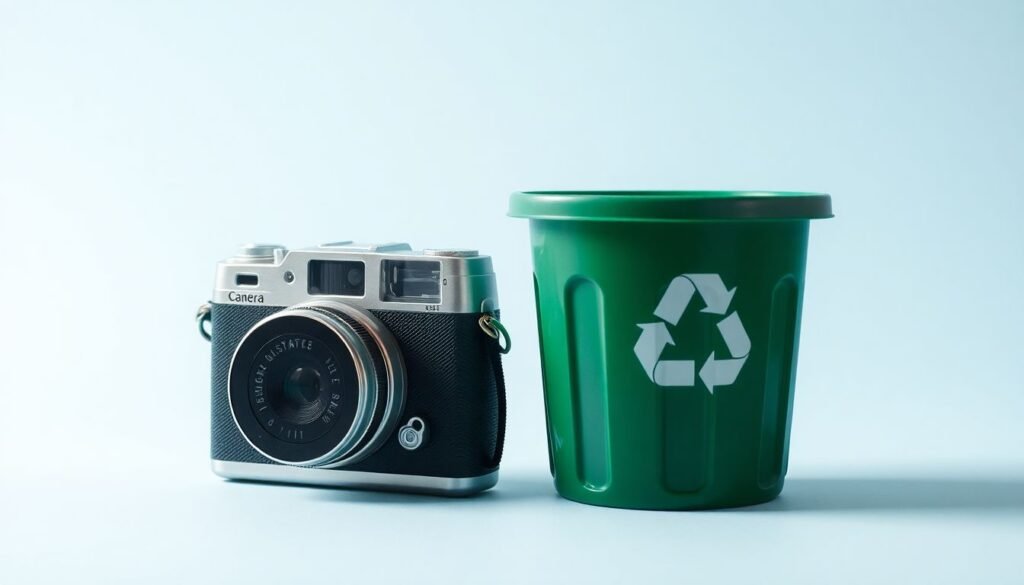Physical Address
304 North Cardinal St.
Dorchester Center, MA 02124
Physical Address
304 North Cardinal St.
Dorchester Center, MA 02124

Disposable cameras, also known as single-use cameras, are simple, easy-to-use devices that come pre-loaded with a roll of film.
Once you’ve taken the pictures, you hand the camera over to a film processing lab where the camera is developed, and the pictures are printed.
Despite the rise of digital photography, disposable cameras remain a popular choice for events like weddings, travel, or even just for those who enjoy the nostalgic feel of analog photography.
Their low cost and vintage aesthetic have contributed to their continued relevance.
Disposable cameras operate using film-based technology. Inside the plastic body of the camera is a roll of film, typically ranging from 24 to 36 exposures. Some cameras also include a built-in flash, powered by a small battery.
After taking all your shots, the entire camera is sent for development, where the film is processed and the photos are printed or scanned into digital formats.

Not all disposable cameras have batteries, but those with a built-in flash do. The battery’s main function is to power the flash, and it lasts only as long as the film roll. Once all the photos are taken, the battery isn’t replaceable.
If you’re wondering how long you can keep an unused disposable camera before it goes bad, the answer mostly depends on the film.
Most disposable cameras come with an expiration date printed on the packaging or the camera itself.
This is typically between 2 and 3 years after manufacturing. However, if stored in optimal conditions, like a cool, dry place, disposable cameras can last even longer.
Temperature and humidity play a significant role in the longevity of disposable cameras. Excessive heat or cold can damage the film and degrade image quality. The best place to store a disposable camera is in a cool, dark location, away from direct sunlight.

If your disposable camera has a flash, you might be curious about the battery life. These small, built-in batteries usually last long enough to power the flash for every shot on the camera. Since the battery is non-replaceable, once the film is used up, the battery is effectively done.
If the camera is stored for an extended period, the battery may die, rendering the flash useless. However, you can still use the camera in natural light.

High temperatures can be disastrous for disposable cameras, particularly for the film inside. Heat speeds up the degradation of film chemicals, leading to washed-out colors, poor contrast, and overall lower-quality images.
Freezing temperatures aren’t ideal for disposable cameras either. Cold can make the film brittle, and if the camera includes a flash, the battery may die quicker in such conditions.
Humidity can lead to moisture seeping into the camera, damaging both the film and mechanical components. This can result in foggy photos or even complete malfunction of the camera.

Several factors influence how long a disposable camera lasts:
Expired film doesn’t always mean unusable film, but there are telltale signs that your camera is past its prime:

You can still use an expired disposable camera, but be prepared for unpredictable results. The images might have an aesthetic some people find appealing, but they won’t be as sharp or clear as non-expired film. If you want to preserve those special moments without risk, it might be worth purchasing a new disposable camera.
Once your disposable camera photos are developed, they can last for decades if properly stored. Avoid direct sunlight and high humidity to ensure the longevity of the prints. Keeping photos in acid-free albums or storing them digitally after scanning can also preserve them for years to come.

Here are a few tips to help your disposable camera last as long as possible:
With smartphones and digital cameras available everywhere, why still choose disposable cameras? There’s a certain charm in the waiting and mystery that comes with film photography.
Unlike digital shots, where you can instantly see and edit the photo, disposable cameras offer a raw, unfiltered view of life’s moments. For many, that sense of surprise is worth it.

One downside of disposable cameras is their environmental impact. Since they are single-use, they contribute to waste, especially the plastic components. However, some brands offer recycling programs, allowing users to send back used cameras to be repurposed. Opting for these programs can reduce their environmental footprint.

Disposable cameras are a great tool for capturing special moments with a nostalgic touch. While they do have a limited lifespan, with proper storage and care, you can extend their usefulness and get the most out of them. Whether you’re storing an unused camera or using an old one, it’s important to keep in mind the effects of temperature, humidity, and expiration dates to preserve the quality of your photos.
1. How long can I keep a disposable camera before using it?
You can typically keep a disposable camera for up to 2-3 years, but if stored in ideal conditions, it can last even longer.
2. Does film degrade inside a disposable camera?
Yes, film degrades over time, especially if exposed to heat or humidity, resulting in lower quality photos.
3. Can I still get my disposable camera developed if it’s expired?
Yes, you can, but the quality of the images may be unpredictable due to the film’s degradation.
4. How do I know if my disposable camera still works?
The only way to be sure is to develop the film. However, if the camera’s been stored well and within its expiration date, it should still function.
5. Is it worth buying disposable cameras today?
Yes! They offer a unique, vintage style of photography, making them popular for events and trips.